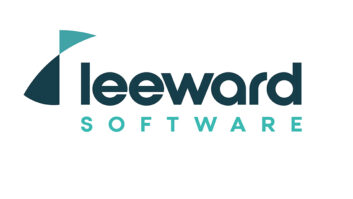Honing skills to be ready for business
Jun 1, 2009 12:00 PM, By Kevin McNamara
The issues with the global economy are taking a toll on most of us. Long before the economy started to tank, broadcasters saw decreased revenues due to the growth of the many new media options available to the public. The combination of these events is proving particularly devastating to many owners who have seen not only a decrease in their revenue, but a substantial decrease in the market value of stations. Some reports place station values down as much as 80 percent of the purchase price. In addition, the stock prices for publicly held media companies are down to record levels.

The fact is that every business is being affected by the economy, but history also indicates that sharp down-turns are followed by a solid period of growth. In my opinion, this is the perfect time for one to really evaluate his or her goals, priorities, needs and desires.
Did you know that 16 of the 30 companies listed on the Dow Jones Industrial Average were started during a period of bad economic times? In our parents’ generation, there was a great deal of value in the concept of job security. I think most people still see this as comforting, but in reality that security doesn’t exist. Even government positions are not guaranteed for life any longer. When I decided to leave the business establishment and start my own business (more years ago than I can remember) people would ask, �How do you deal with having no job security?� and I would answer, The only difference between my situation and that of someone in the role of an employee is that I know when my assignment is over. Jack Welsh, the former head of General Electric coined the familiar phrase �If you don’t control your destiny, someone else will.� Now is the time to start honing your skills!
Taking control
Most stress is caused by being in a situation you feel is out of control; whether it relates to money, pressure of completing something on time, public speaking, staying in a job you hate, etc. We have all experienced stressful situations, but consider that what makes stress diminish is the resolution of the particular concern � the presentation is over, the bills are paid, project is complete.
It is harder to resolve things where you feel fully vested such as a relationship or a career. Most people prefer to stay in their comfort zone. This is particularly true in a job � you know the players, you know how the company operates, you know how to get things done, you know your relationship with upper management, you know the company culture and they know you. Although less apparent, the company likes to have known commodities for its employees, it makes management feel more secure in knowing something can be carried out by the resources in place, or in this case, you! The company may offer training to its employees, but this is typically limited to that which relates to the particular employees position. Any of this sounding familiar?
If you are indeed comfortable in your current situation you are likely not feeling threatened that the economy will have any effect on your job, but I suspect the majority of employees have serious concerns for the direction of their futures.
The first step to taking control of your future is to evaluate what it is you really want to do. This may not be easy, because the majority of us entered the broadcast engineering field because it is fundamentally rooted in something we started as a hobby, namely electronics tinkering and problem solving. It is however possible to take that acquired knowledge and experience to other opportunities. Unlike many engineering disciplines, broadcast engineers deal with a broad variety of situations that can range from day-to-day maintenance to managing the construction of entire facilities. You probably already possess a wide range of skills. Have you thought about which part of your job you enjoy more than others? This is the starting point for making that decision as to what path you might pursue.
Start researching opportunities on the Web, not necessarily to find a new job, but rather to see what positions might exist and the particular demand for a position. Most importantly look at the specific requirements, skill sets, certifications and/or degrees employers are seeking. This is the basis for your next step: Acquire the needed skills to achieve your plan.
Getting the skills
Obviously many employers like to see a resume full of academic achievements, which is great if you already have it, but over the past 10 years or so, there has been a trend in organizations offering specific certifications in various disciplines. In essence, the intent of these certifications is to distinguish a person from his non-certified counterparts. In some cases a company may require select employees to obtain a certification for the business to meet certain qualifications to do business with other entities. A good listing of professional certifications can be found at en.wikipedia.org/wiki/Professional_qualification.
One example is the Project Management Professional (www.pmi.org) which requires a combination of academic education, project management training and about 4,500 hours of documented project management experience. In addition there are a wide range of certifications in other disciplines such as computer software, networking, hardware, cabling, installation, construction, etc. If you decide to obtain a certification, you may also find the cost for training has come down significantly, one of the few benefits of a bad economy.
You can be sure the economy will recover and you want to be in a position to take advantage of the inevitable opportunities. This is a great time to prioritize goals, make a plan, start the process of learning new skills or increasing the marketability of the skills you already have.
McNamara is president of Applied Wireless, Cape Coral, FL.












